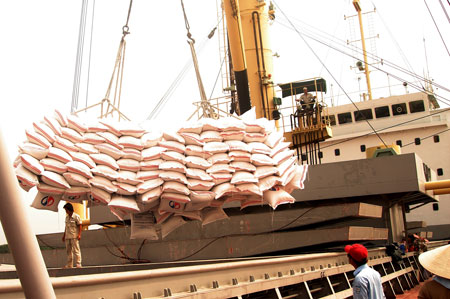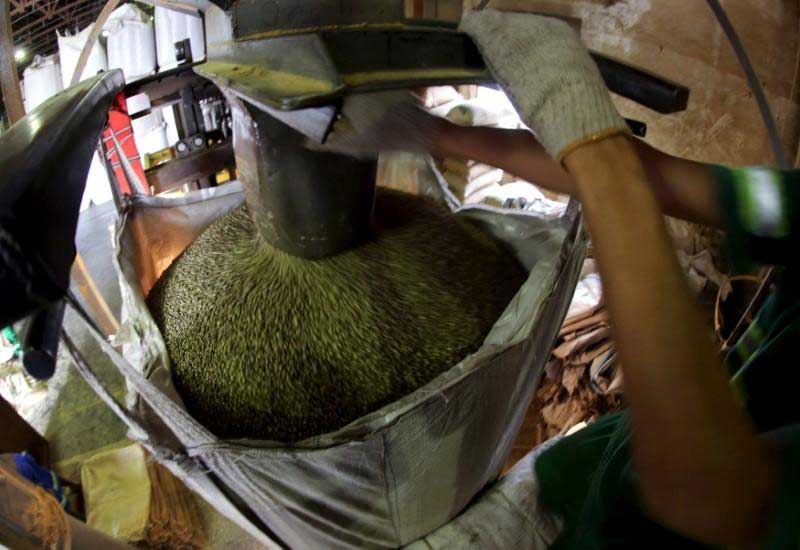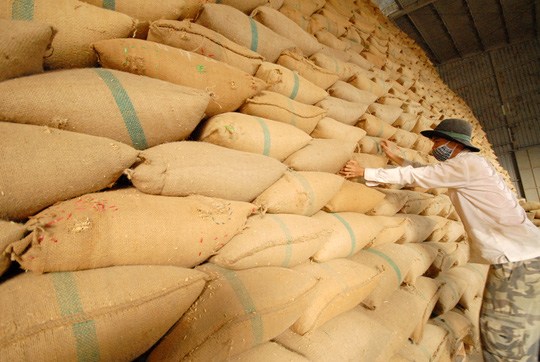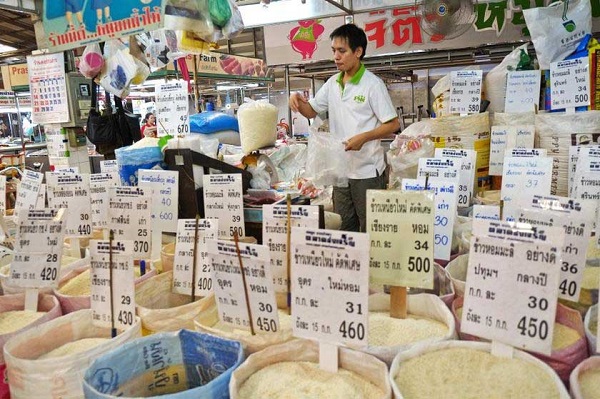Programming new operating system for rice export
Many commented that the time has come for the Government to take strong measures to promote the market and promote the export of rice. However, instead of tightening or loosening the conditions of rice export business, Vietnam needs to program a new operating system to reboot the entire system when entering into this important business.

Still inadequate
It can not be denied that, for a long time, Decree 109/2010 / ND-CP on rice export business has helped improve the situation of rice exports in Vietnam. Along with that, the strict regulations of this decree also help screen and eliminate unqualified traders as well as long-term traders.
However, after 7 years of application, Decree 109/2010 / ND-CP has been inadequately adjusted. But, “editing” or “refreshing” is a matter of many opinions and the government is considering. Because lack of effective management tools, the sensitive business sector such as rice exports is likely to become irritating. But if the “bundle” too will cause difficulties for businesses, traders and negative impact again.
According to analysts, over the past time, Decree 109/2010 / ND-CP has resolved basically the many years of inadequacies in purchasing, consuming rice and improving the quality of export products. However, the conditions of warehouses, raw material areas, contract conditions have become formal or barriers to traders.
Tran Huu Hiep, Director of the Economic Department, Steering Committee for South-West of Vietnam, explained that, based on the current regulations, the approach to determining the conditions for export business. Rice is “chopped” by actors but not based on the relationship of the rice value chain, but export is only output.
This makes enterprises have to invest themselves from raw material areas, processing capacity, storage to export, not to promote the specialization of the strength of each enterprise and then re-link.
Given the concrete example, Tran Huu Hiep said that, for example, Co May Private Enterprise (Dong Thap), Vien Phu Production and Trading Joint Stock Company (Ca Mau) The number of specialty rice and organic rice in small quantities, the demand and ability to invest in the construction of warehouses, mills and rice mills is limited, therefore, they do not meet the prescribed conditions.
In addition, some other traders have the strengths in terms of customers and markets, but they do not have the financial, capital or land and human resources needed to invest in the operation of rice mills and warehouses. Also classified as unqualified.
Another impediment is also that Decree 109 requires exporters to have at least one specialized warehouse with a minimum capacity of 5,000 tons of rice and at least one rice husking and grinding facility. With minimum capacity of 10 tons of rice per hour. While the business can fully use this service through affiliation with a specialized business that does not necessarily cost expensive investment.
Therefore, the draft Decree 109/2010 / ND-CP has been adjusted by the Ministry of Industry and Trade on the legal and institutional framework, enabling enterprises to integrate deeply and effectively into the world market in the context of the market. The world rice market is increasingly difficult as the market is decided by the buyer and the imbalance of supply and demand. However, these constraints have to be calculated to liberate the productive forces, especially those engaged in doing business in the world market.
Institutional refinement
The Ministry of Industry and Trade said that in 2017, there will be a really strong change in viewpoints, policies and institutions in order to form large production areas for mechanization, automation and public works. Technology in agricultural production, creating the premise to successfully build the brand of rice.
However, according to experts, to do this the rice industry will continue to face many difficulties. Therefore, Vietnam’s rice sector should continue to improve internal weaknesses such as fragmented production, processing has not ensured continuity and speed up the building of Vietnam’s rice brand in the world market. .
According to the recommendations of Khiem Thanh Food Export Company Limited, the new draft decree should create conditions and support to maintain prestige and quality and proceed to build the Vietnam rice brand. In addition, the State should have policies to help businesses build stable material areas through links with farmers, as well as facilitate the expansion of distribution systems abroad. Particularly, it is important to be equitable, fair and secure for businesses to export their own high quality rice.
Sharing this viewpoint, Pham Thai Binh, Director of Trung An Co., stated that the draft decree should introduce favorable policies to help businesses create concentrated raw material areas, improve product quality. Products, step by step towards building a common rice brand. In particular, measures need to be taken to control the elimination of unhealthy competition by reducing the selling price and the lack of stability in quality of some enterprises that affect the overall export of rice.
Trade experts said that in order to export rice to sustainable development, Vietnam’s rice industry needs a new vision in combination with strategic planning in line with the trend of globalization and added value. Best for rice farmers in Vietnam as well as for exporters.
In addition to support from the State, local ministries and branches are in need of the efforts of each business association to create a breakthrough to bring the Vietnamese rice grains to match the new position of country.




